#7 on our ongoing series of Top 10 Top 10 lists
Sometimes you’ll be standing around chatting with friends at a party or even strangers at the dentist’s office and the subject of Favorite Composers comes up. You’re stunned and thrilled and you run through 500 years of musical history in your head and inevitably the question arises: such-and-such a piece is one of my favorites but does that mean that such-and-such composer is one of my favorites? Did he even write anything else?
And usually it just seems too far-fetched or embarrassing or irrational, so another composer gets passed over – or worse, ridiculed – just because he had the misfortune of having a huge success at one point in his career, something most of us would kill for!
No more! Here are my top 10 One Hit Wonders:
1. Carl Orff (1895 – 1982)
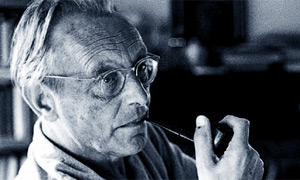
For those who have ever even heard of him, Carl Orff is remembered solely for his cantata Carmina Burana. For the hundreds of millions of other people who have heard the opening of this piece (and, more and more frequently, parodies of it) in every action film trailer, they simply think of it as evoking the Epic.
And the piece really is on an epic scale: it’s well over an hour long and requires hundreds of people to perform it.
The classical elite tend to poo-poo it because it’s rough and raunchy and lacking in counterpoint and other niceties, but when it comes right down to it, it’s got some attractive tunes, interesting orchestration, and it’s certainly as entertaining a spectacle as you’re going to see.
Poo-poo we may, though, Herr Orff’s unseemly relationship with the Nazi regime, the details of which remain unearthed. Perhaps providing the anonymous soundtrack for a cavalcade of lowbrow genre pictures is an appropriate purgatory for such an icky person.
2. Gustav Holst (1874 – 1934)
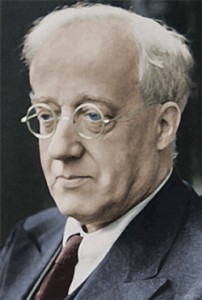
To be fair, Gustav Holst is known for more than just The Planets. But only among two groups of people: 1) string orchestra students in middle school and 2) band students in middle school. OK fine, high school too. The former because of his endlessly charming St. Paul’s Suite and the latter because of his two folksy Suites for Military Band.
But to the rest of us (or, more accurately, to the rest of you), he is known for that cosmically delightful orchestral suite, The Planets. And why not? It was a very unique idea for a tone poem, it’s gorgeous, and it works equally well in the concert hall and the plane’arium.
It’s worth noting that the World Astronomical Society (or whatever it’s called) spurned another would-be One Hit Wonder when they downgraded Pluto to Dwarf Planet status. The Hallé Orchestra had commissioned a certain pretender named Colin Matthews to write a “Pluto” movement to “complete” the cycle of the planets. Your author is not ashamed to admit that he took a certain pleasure in this spurious composition being downgraded to Dwarf Music status.
3. George Enescu (1881 – 1955)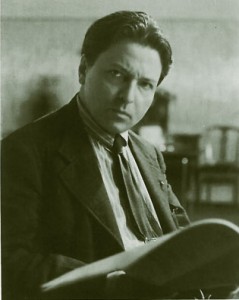
Befitting the title of this list, I know precious little about the lives of most of these composers. The one little insight that I have about Mr. Enescu is that he composed his big hit, the Romanian Rhapsody No. 1 at the tender age of 18, it was a huge success, and he resented it for the rest of his life.
I would have to guess that Enescu is Romania’s most famous composer, largely because I can’t think of a single other one. Can you?
This piece is one of the many that make Pops Concerts worth doing.
(Romanian Rhapsody No. 1, Bucharest PO/Mandeal)
4. Charles Marie Widor (1844 – 1937)
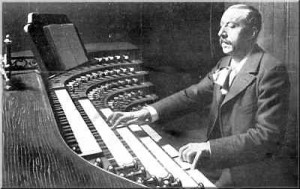
First off, can I just say that (1844 – 1937) is pretty amazing lifespan? This guy overlapped with Robert Schumann and Steve Reich. Not to mention he would have been a full-grown adult when the electric light bulb was introduced and could have seen television prior to his demise (though one assumes he didn’t.)
Maybe it was all those electric currents in the air, or maybe it was when they finally got into his organ (the one he played. At church. This isn’t getting any better…) but there’s something so catchy about that Toccata from his Organ Symphony No. 5:
5. Engelbert Humperdinck (1854 – 1921)
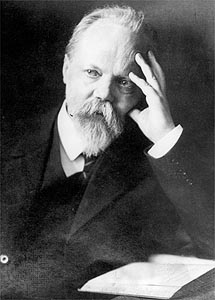
Mr. Humperdinck is known for two things:
1) having had his name appropriated by the eponymous 1970’s pop singer who is likely such a lame historical relic that most of my readers won’t even have heard of him and
2) the gorgeous fairy tale opera Hänsel und Gretel.
The latter is a lush, melodic work, sort of Arthur Sullivan meets The Magic Flute meets the Brothers Grimm meets Richard Wagner, but gentle and pretty.
6. Franz Biebl (1906 – 2001)

Since we engaged in some minor slander (or, at the very least, hearsay) concerning Carl Orff’s relationship with the Nazi regime, let’s take this chance to shed a softer light on Herr Biebl’s activites. Yes, he did fight in the German Army during WWII. However, he was drafted and his service lasted only a few months before he was detained and taken to a prisoner of war camp in Michigan for 3 years. So not exactly blameless, but no Carl Orff either.
His big hit, an all-male a cappella setting of the Ave Maria gained international attention because of Chanticleer. The recording I submit for your enjoyment comes not from their ultra-pristine reading of it however, but from the Dale Warland Singers. Perhaps those boys at Kurt’s new school will do it next on Glee.
7. Luigi Boccherini (1743 – 1805)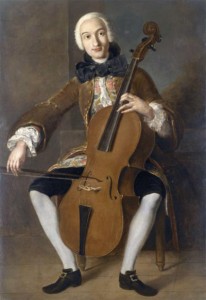
I am proud to count among my friends many superb cellists who may take issue with my calling Boccherini a One Hit Wonder. But that would be such egregious partisanship towards a ‘cello composer’ that I trust they won’t dabble in such provocations.
We non-cellists may recognize this, the so-called “Celebrated” quintet:
8. Ruggero Leoncavallo (1857 – 1919)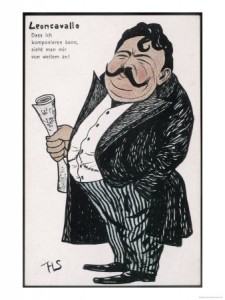
I almost included Pietro Mascagni on this list item with Leoncavallo, since their respective hits, Cavalleria Rusticana and I Pagliacci are so frequently performed as a double bill. I decided not to include Mascagni though, not because of the overly fawning descriptions from the Wikipedia Mascagni-ites [ps. memo to those people: methinks the lady doth protest too much…], but because there is nothing in Caveleria that even approaches the worldwide recognizability of “Vesti la Giubba”:
9. Paul Dukas (1865 – 1935)
 Monsieur Dukas personally had a lot to do with his status as a one-hitter – like Brahms before him, he was such a perfectionist that he ended up destroying many of his works. With only a handful of published pieces, the odds were very low that any one of them would hit it big.
Monsieur Dukas personally had a lot to do with his status as a one-hitter – like Brahms before him, he was such a perfectionist that he ended up destroying many of his works. With only a handful of published pieces, the odds were very low that any one of them would hit it big.
And none of them might have were it not for Walt Disney. Mr. Disney deserves a lot of credit for his imaginative choice of repertoire for the original 1940 Fantasia. His choice of The Sorcerer’s Apprentice was obviously a win-win deal though – not that he could really enjoy his newly found popularity, but Mr. Dukas’ name does live on, and Mr. Disney got one of his most marketable images out of this particular episode.
(L’Apprenti sorcier, NRPO/Fournet)
As long as we’re talking about Paul Dukas, I should mention that his ballet La Péri is a personal favorite of mine, and I’d very much recommend it to fans of “Apprentice”.
10. Johann Pachelbel (1653 – 1706)
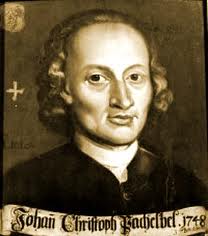 I couldn’t NOT include Pachelbel on this list, but I could at least make him last. Any string players reading this will know the reason for my ‘tude re: Mr. Pachelbel: we have been forced to play his mega-hit Canon in D at least since we were in middle school, but it feels more like since the dawn of time.
I couldn’t NOT include Pachelbel on this list, but I could at least make him last. Any string players reading this will know the reason for my ‘tude re: Mr. Pachelbel: we have been forced to play his mega-hit Canon in D at least since we were in middle school, but it feels more like since the dawn of time.
And if it weren’t so over-played, it would be an easy piece to love. It’s both festive and tear-jerky. Its incessant repetition makes it seem like it slips in and out of eternity. Ironically, its excessive length makes it seem like it lasts for all of eternity. But really guys, it’s not as insipid a piece as we’re all led to believe.
Now, for those of you who are just plain sick of it, allow me to refresh your years by introducing unto you the GREATEST WEB SITE OF ALL TIME. Some evil genius, possibly named H. Miller, has created a site devoted to the “warped canon” – midi versions of the Canon in every tuning system known to man!
Perhaps you’d like to listen to the canon in the otonal or utonal Blacjack scales, or in the 88-CET 7/4 “octaves” version. But you couldn’t do better than to start with 30-tone equal temparament:
Evil! Genius!!
Discuss
So, how are we judging these composers? Is it by the quality of their “hit”, or by their other compositional achievements? Like I said, I’m not so familiar with many of these gentlemen’s oeuvres, so I’ve mainly based my collection on the quality of that one super-famous piece.
What qualifies as a ‘hit’ is also a slight conundrum. Obviously on this list, I have gone for mainstream awareness (“O Fortuna”) but I also included some pieces that are hits of a much more modest variety (the Biebl “Ave Maria”). So, take that all into account and argue amongst yourselves!
Should you accept this challenge, the choice is yours of how to proceed: make your own list of Top 10 One-Hit Wondrous Composers, or replace some of mine with your own suggestions. Just tell us who you are taking off the list, and be aware that you will really hurt their feelings.